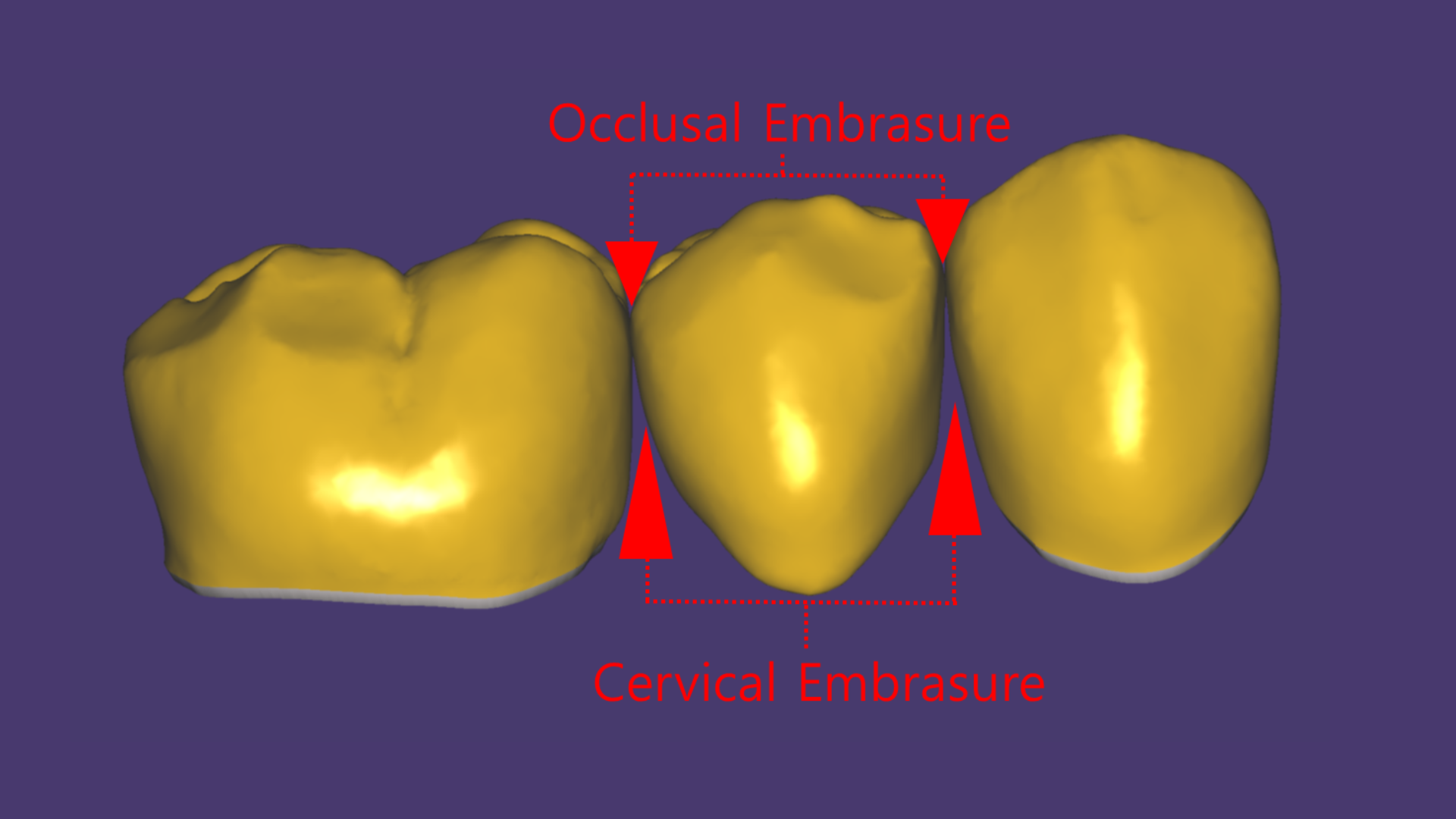The Composition of Teeth and Dental Terminology Lesson No. 5
1/39
There's no tags or description
Looks like no tags are added yet.
Name | Mastery | Learn | Test | Matching | Spaced | Call with Kai |
|---|
No analytics yet
Send a link to your students to track their progress
40 Terms
Anatomic Crown
This is the portion of the tooth that is covered by enamel and visible in the oral cavity
Anatomic Root
This portion of the tooth is embedded in the bone of upper and lower jaws and is covered by cementum
Pulp Cavity
This cavity is filled with pupal tissue an dis located at the central portion of the tooth, and is surrounded by dentin
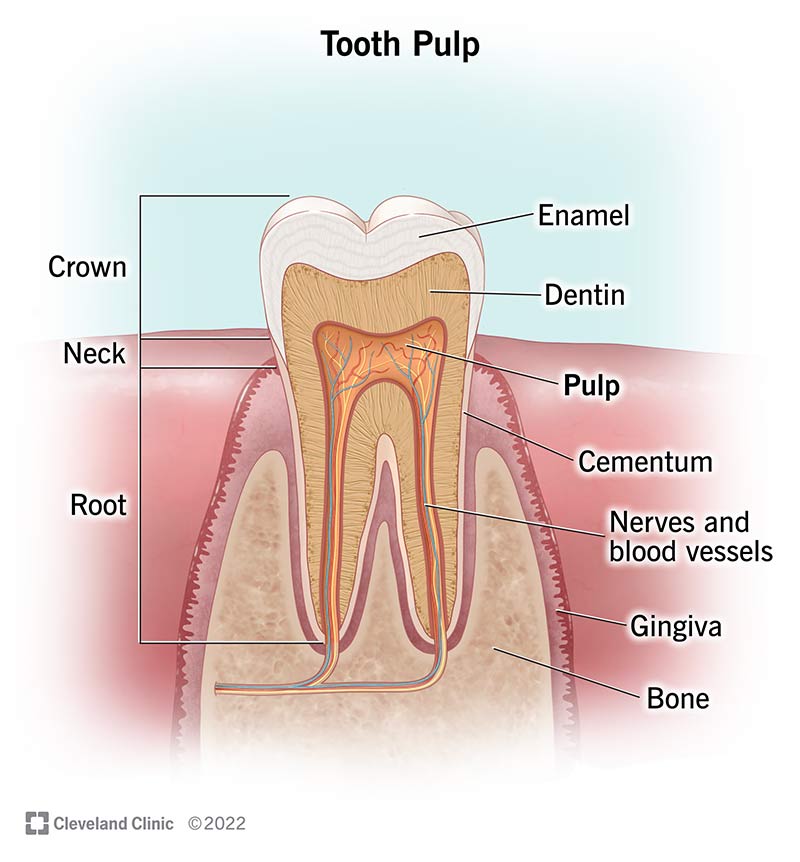
Cementoenamel Junction (cervix)
This is constricted portion of the tooth at the junction of the anatomic root and anatomic crown
Apex
The tip of the root
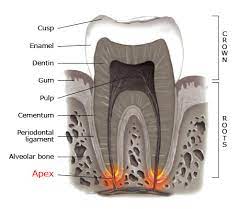
Apical Foramen
Minute opening that the blood supply (arteries and veins), lymphatic drainage system and nerve supply enter the tooth into the dental pulp
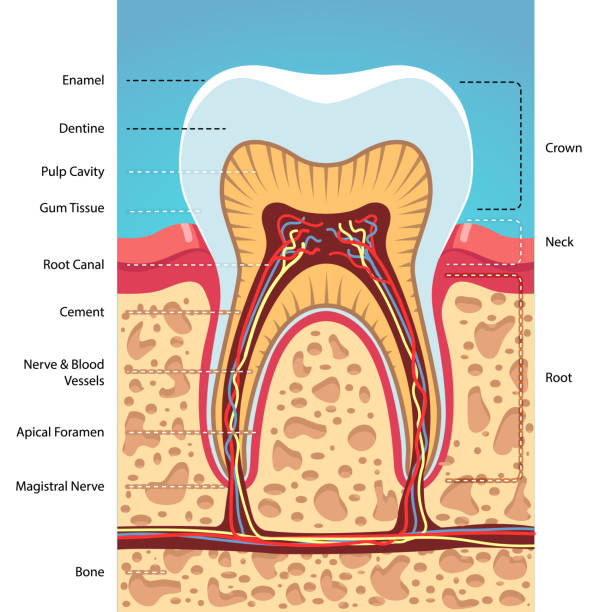
Blood supply
The arteries and veins enter the dental pulp through the apical foramen. Blood vessels are more numerous in younger teeth as opposed to older teeth
Lymphatic Drainage
An independent system of vessels carrying lymph
Lymph
A clear fluid that carries waste
Nerve Supply
These nerves endings transmit sensations of either pain or touch
Pulp Chamber
Largest portion of the pulp cavity located within the coronal portion of the tooth
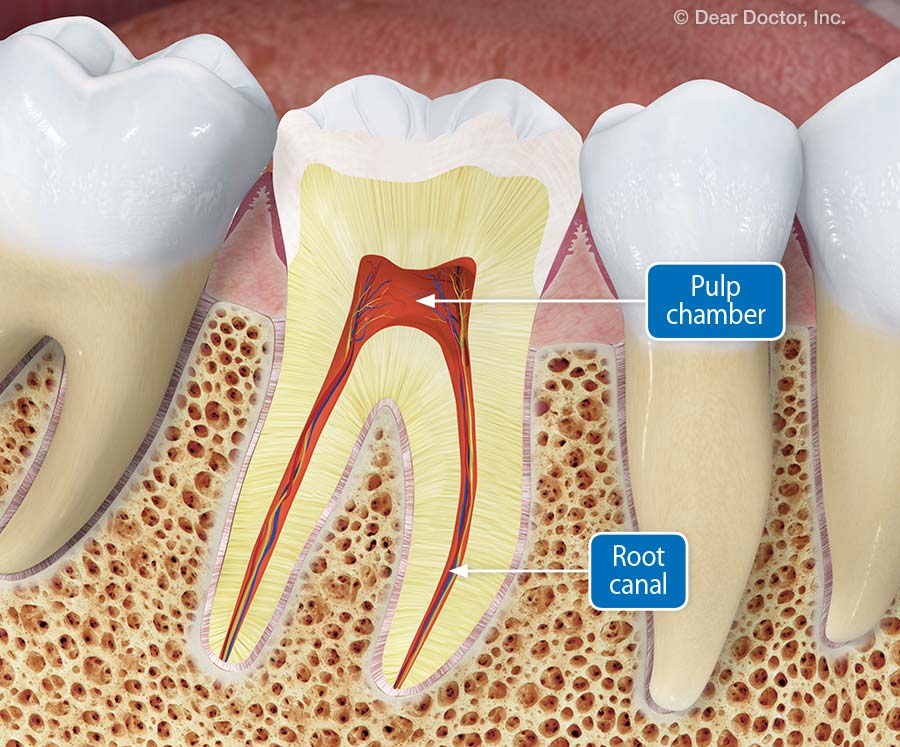
Pulp Canal
The small and narrow portion of the pulp cavity located within the root of the tooth
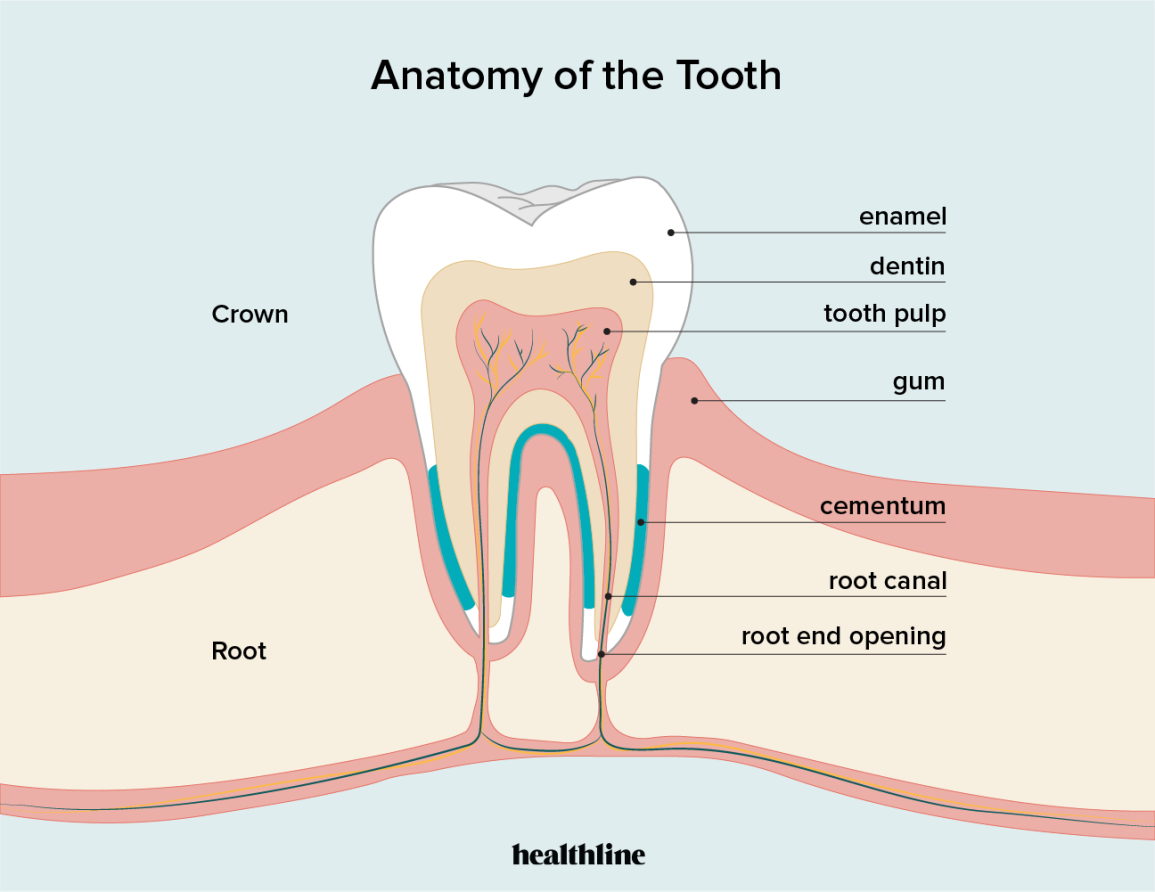
Functions of pulp cavity
Formation of dentin, sensation, nourishment to dentin
Enamel
Hardest tissue of the human body, protects dentin, and is made up of rods and prisms
Lines of Retzius
Also called incremental lines. Evident in cross-sectional view of enamel. Resemble rings found in the trunk of a tree
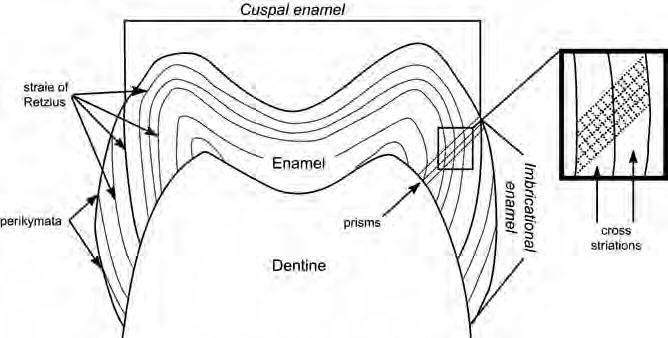
Dentin
Makes up largest portion of tooth and harder than bone but softer than enamel
Tome’s Dentinal Tubules
Hollow yellow tubes that comprise dentin
Odontoblasts
These cells are responsible for the formation of dentin. They are located near the pulp and the dentin
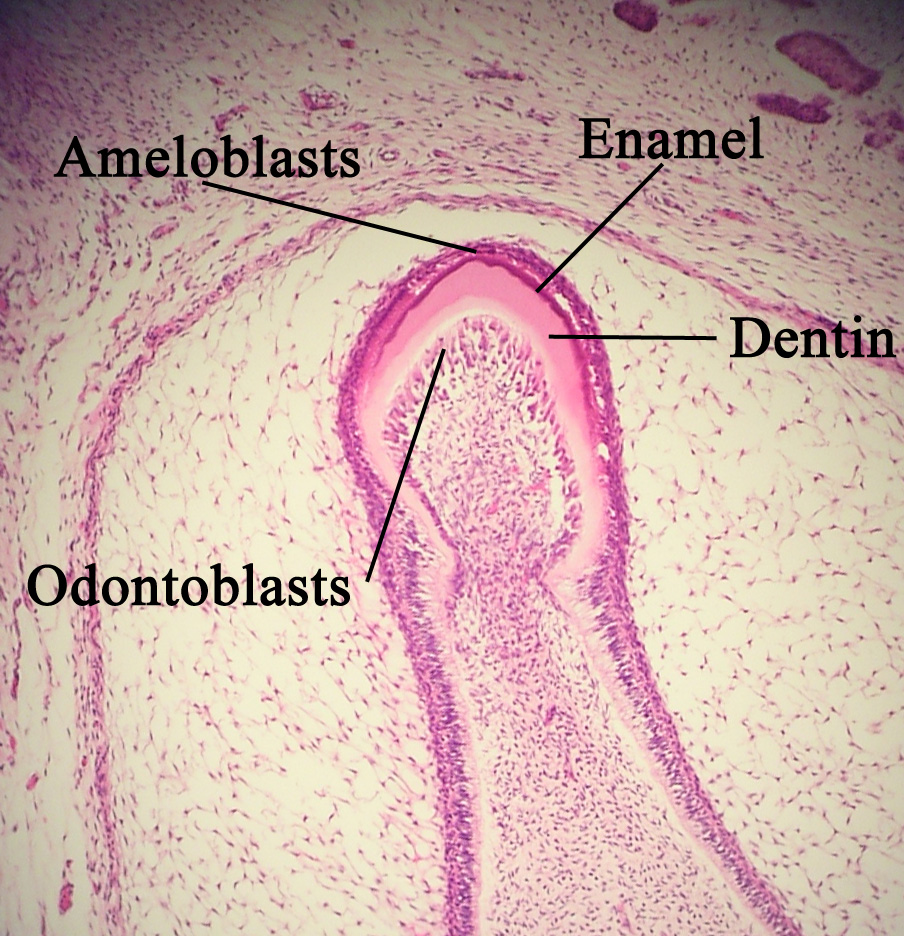
Secondary Dentin
Formed by odontoblasts and occur at areas of irritation such as caries and tooth wear
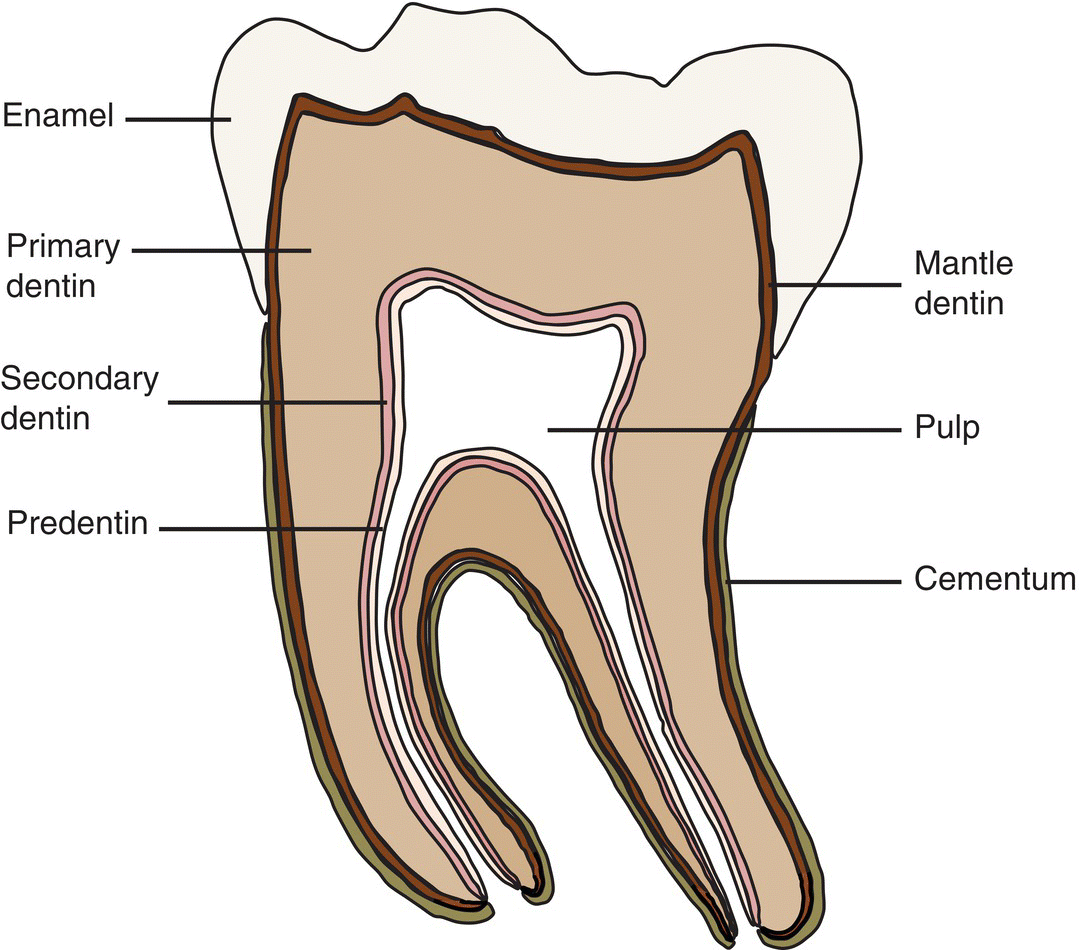
Cementum
Covers the roots of the tooth
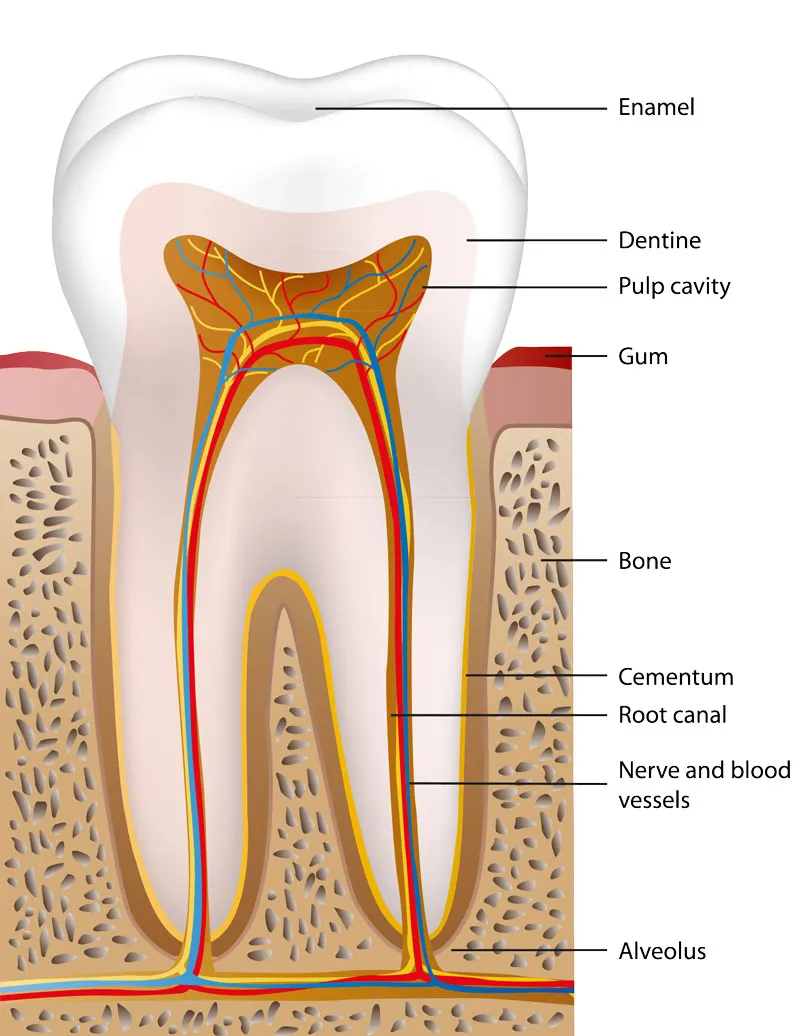
Periodontal LIgament
Collagenous Fibers embedded within the cementum
Cusp
A peak of elevation of a tooth located on the occlusal surface of molars and premolars and on the incisal edges of canines
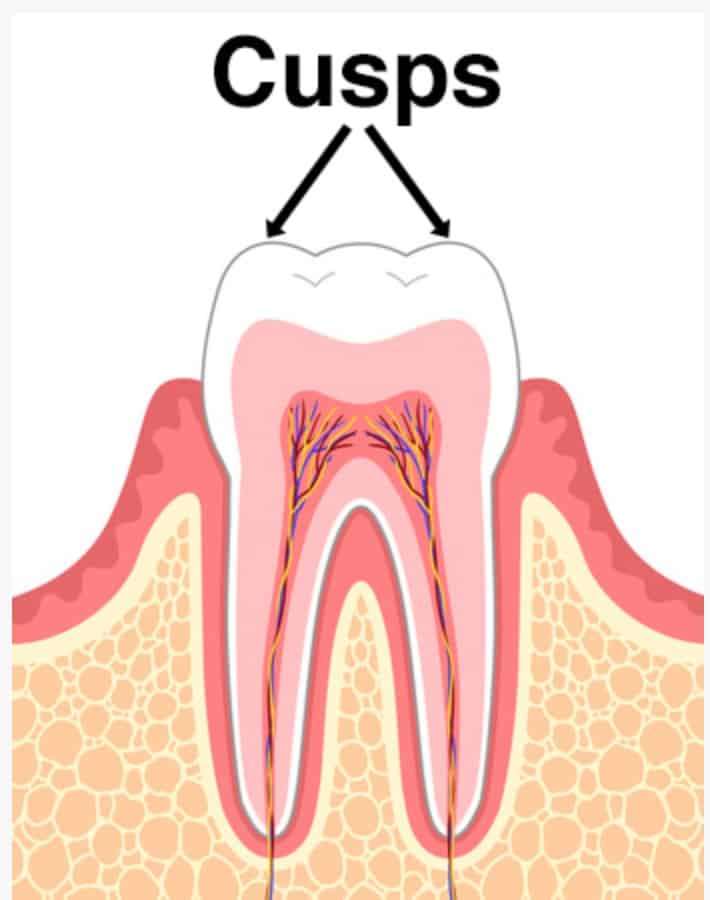
Contact
An area where one tooth is touching its neighbor
Cingulum
A bulge or elevation located on the cervical third of anterior teeth
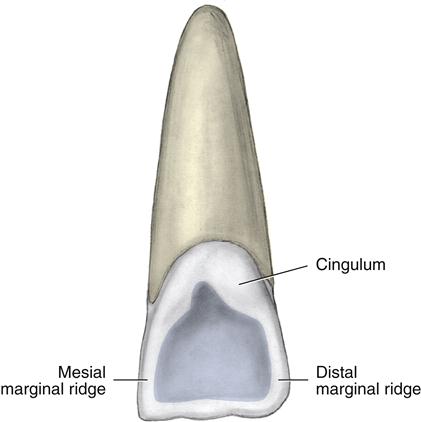
Lobe
A primary developmental center in the formation of the crown of the tooth
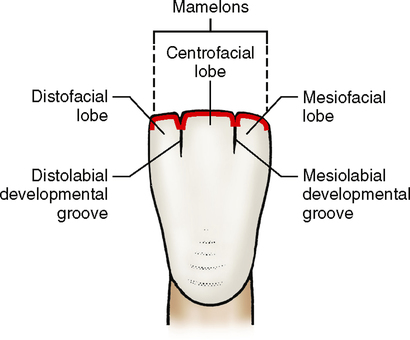
Cusp of Carabelli
A “fifth” cusp found on the lingual surface of some maxillary first molars
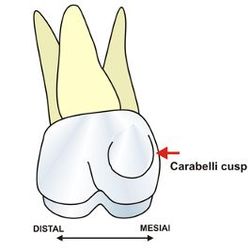
Developmental Groove
A groove formed by the union of the two lobes during the development of a crown
Fissure
A fault that occurs along the development groove during the incomplete of a crown
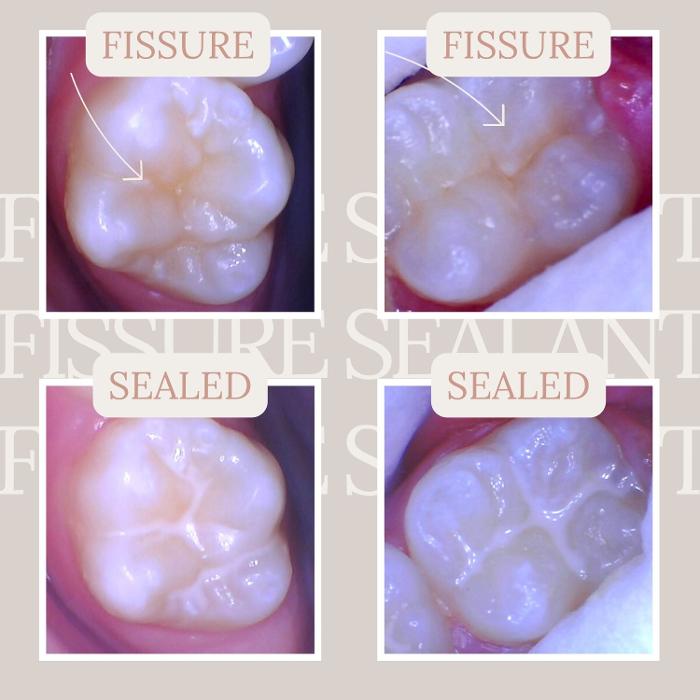
Pit
A pinpoint depression located at the junction of development grooves or fissures. A pit is often the site of dental caries
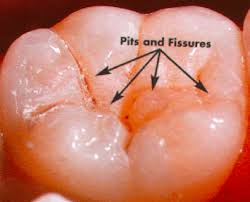
Mamelon
A lobe found on the incisal edge of anterior teeth. Usually three in number
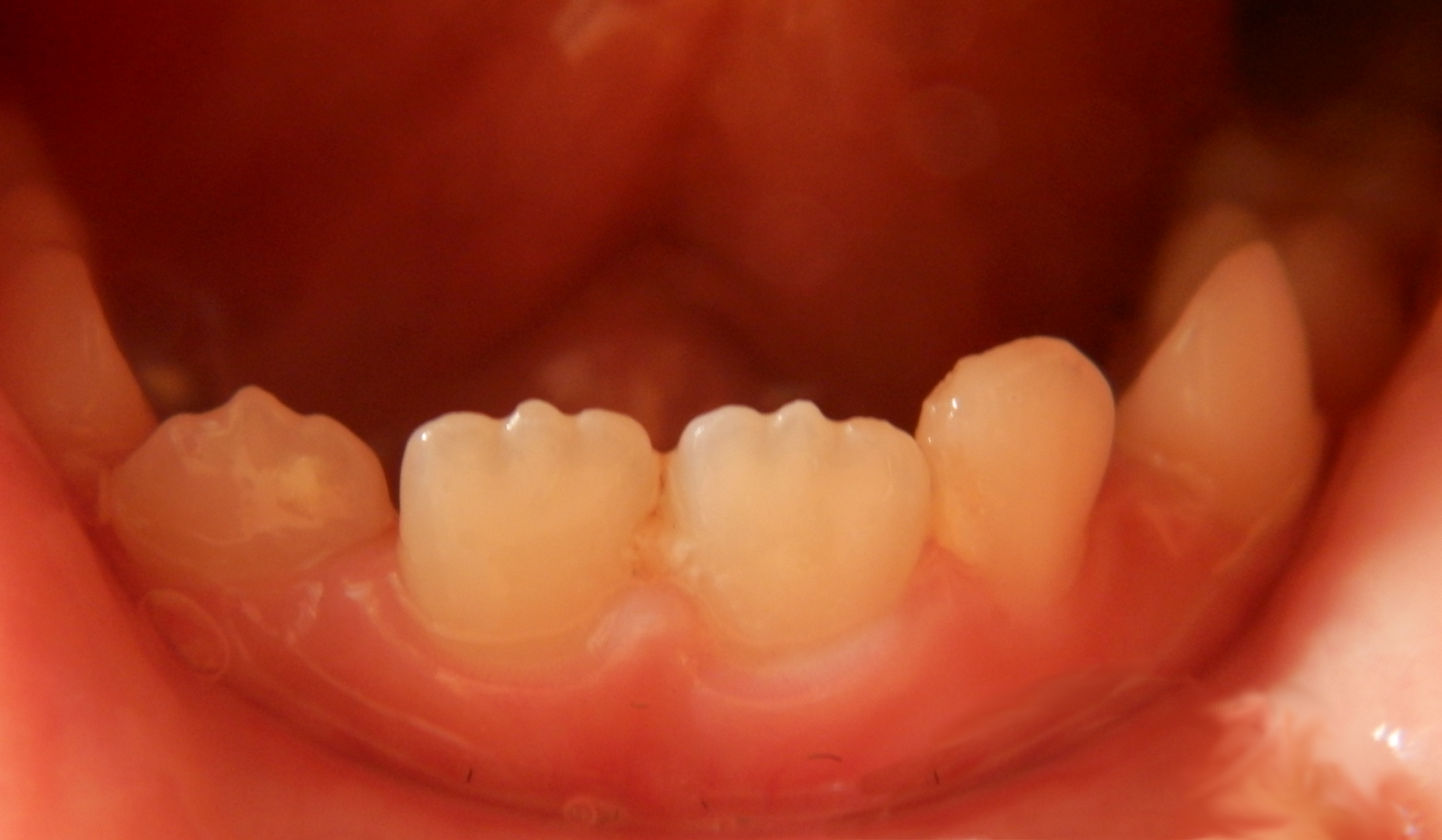
Groove
A linear depression on the surface of a tooth
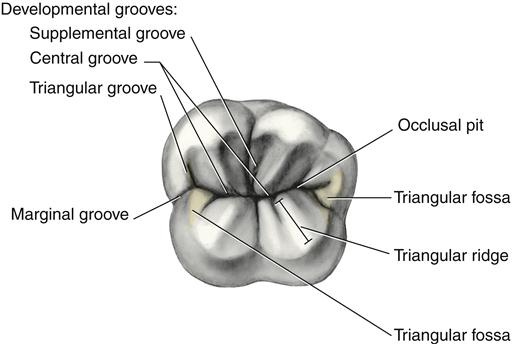
Ridge
A linear elevation on the surface of a tooth. It gets its name according to its location and form.
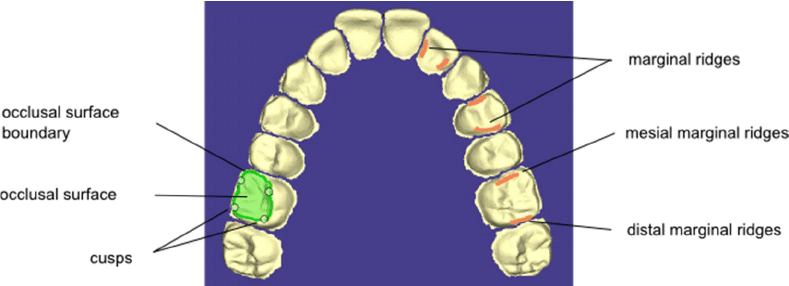
Marginal Ridges
Elevated borders of enamel which form the margins of molars and premolars mesially and distally and the lingual surfaces of anterior teeth
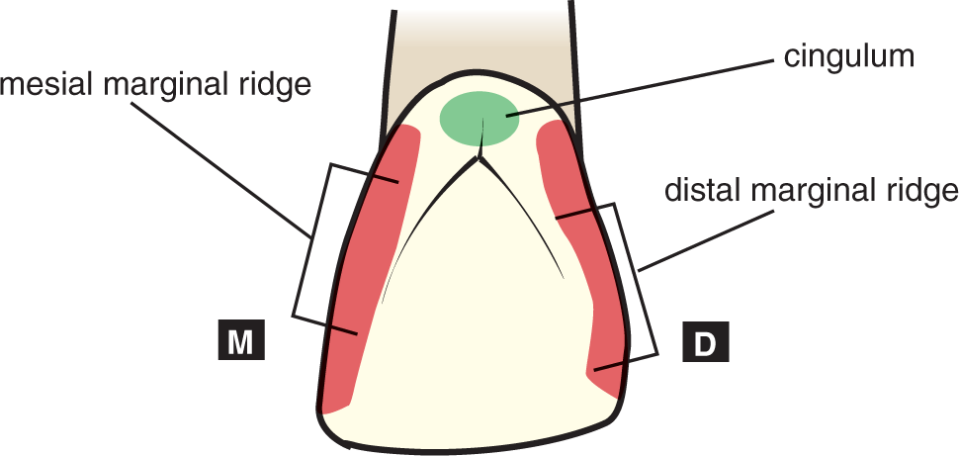
Triangular Ridges
Ridges that descend from molar and premolar cusps tips toward the central part of the occlusal surface
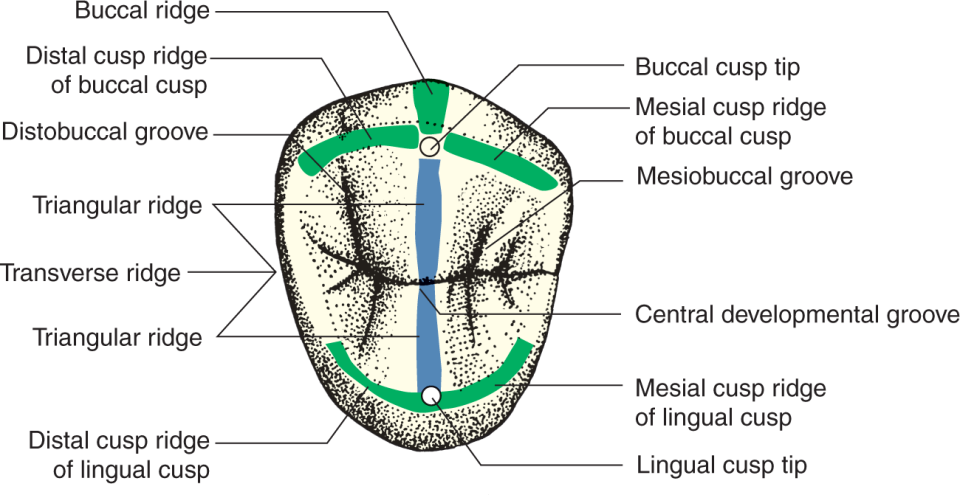
Transverse Ridges
Form when a buccal and lingual triangular ridge join
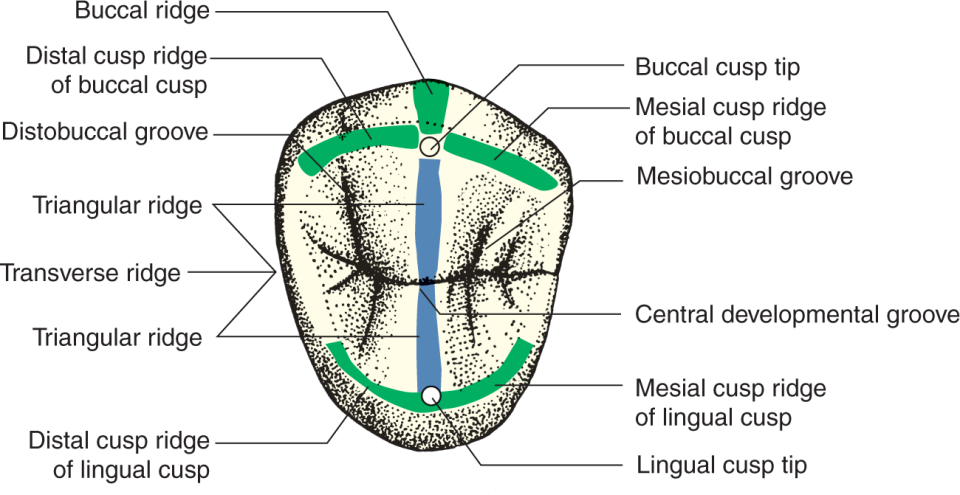
Oblique Ridges
Found on maxillary molars and extend from the mesiolingual cusp to the disto lingual cusp
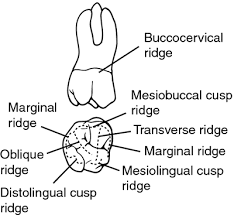
Fossa
A rounded or irregular depression found on the surface of a tooth
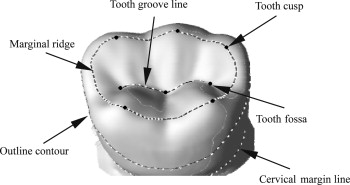
Supplemental Groove
A shallow linear depression that is less distinct than a developmental groove. Gives the occlusal surface surface a wrinkled appearance
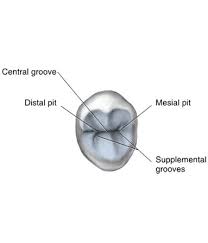
Tubercle
A deviation from normal anatomy. The small elevation is produced by an extra formation of enamel. These appear on marginal ridges of posterior teeth and on the cingulum of anterior teeth
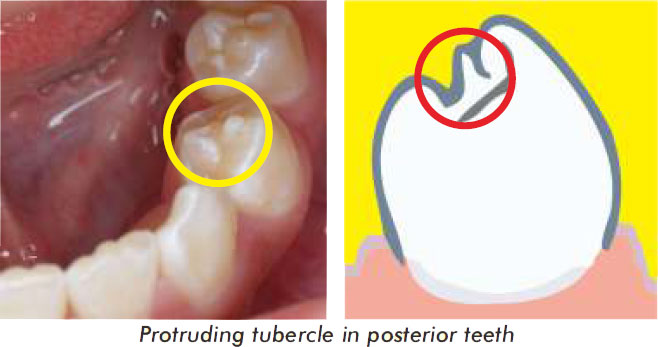
Embrasures
A triangular space in the gingival direction between the proximal surface of two teeth in contact. The embrasures may diverge in four directions (facially, lingually, occlusally, and apically)
